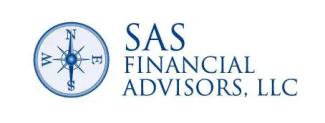Nearing post-Covid travel, inflation, taxes, and Child Tax Credit payments
JoBeth and I took our first post-Covid-19 airplane flight this past week. We visited my children in Taos, NM, and stopped in Santa Fe, NM for a couple of nights. There was a distinct contrast in mask and social distancing between San Francisco and New Mexico. NM has a high vaccination rate but compliance with public health measures was notably less stringent than SF. It was a bit shocking to us and we still made an effort to eat outside or do takeout to bring to our hotel room. When we entered stores we were told a couple of times that we could remove our masks if we wanted. It reminded us of how compliant we are in SF and that is one important reason for our success in getting in front of this public health crisis.
We are planning more trips including domestic travel this year and international travel next year. This recent trip made us more aware that what feels “safe” for us might not be the same definition of safe for others, a topic we covered last week in the SAS blog entry "Decision Paralysis." Also, how we behave in our SF bubble is not necessarily what is happening elsewhere, especially internationally.
Markets
As we near new highs in market averages the inflation fear seems to be receding for the moment. Interest rates are stable at the lower end of a range with mortgage rates declining again. The housing market and even sectors of commercial real estate are on fire. The potential federal infrastructure deal is yet to be formulated with substantial disagreements about defining infrastructure as well as funding being substantial hurdles. Raising taxes is anathema to Republican legislators even as we discover that billionaires are legally paying very little, reportedly as low as a 3.5% rate for federal income tax for those including Warren Buffett, Jeff Bezos, and George Soros.
Administration
As the American Rescue Act continues to unfold, July 15th will be the beginning of the Child Tax Credit payments to over 80% of Americans with children. The payments are higher for younger children and eligibility have income caps. Child poverty rates should decline substantially as a result of these payments. There is also a goal on the part of the President to make these payments permanent.
Congress
We are paying attention to the bipartisan efforts of Congress to pass a Secure Act 2.0 including lifting the Required Minimum Distribution age to 73 and gradually much higher. Catch-up contributions could be increased as well. Currently, the bill is being formulated so we will see what comes out of the chopped liver.
Secretary of the Treasury
Janet Yellen and the gang of 7 international powers have endorsed a minimum corporate tax rate of 15%. This is significant because of the corporate search for the lowest tax rate headquarters allowing some of our largest, most profitable corporations to pay little or no corporate tax.
Life
Recently in a parenting blog post, Monique came across an article suggesting a helpful lens on nurturing a healthy relationship with a growing child. The article offered solace to parents and partners of young children feeling stretched thin by the day’s demands with a suggestion of holding space for 9 special minutes spread throughout the day.
These three-minute intervals could serve as important touchpoints for the parent-child connection. The article suggested that the first three minutes after the child wakes, the first three minutes when they come home from school or a play date and the last three minutes before they drift off to sleep are meaningful moments.
Set aside the pressure of trying to be a perfect parent 100% of the time and instead mindfully connect with your child first in these manageable moments. If we can be 100% present in these intervals we can alleviate the unrealistic pressure in trying to be the “best” 100% of the time. Try to track these minutes on a calendar for a period of time to keep yourself accountable, and remember, seek progress, not perfection. From there, adjustments can be made beyond this achievement. Sounds less exhausting too, doesn’t it?
This mindfulness practice can be applied to any relationship. Think about our relationships with our spouse, extended family, and old friends. Many of these relationships suffer from the consequences of busy schedules and long to-do lists. All evolving relationships can be improved by creating meaningful space for each other. Awareness helps lift us from the mire of the day’s demands and appreciate these special moments with each other.
This intentionality also applies to your relationship with money. At SAS, checking in with us serves as one important touchpoint by addressing and refreshing your goals annually and checking in with yourself/your household monthly. Reflecting on whether or not your household expense patterns and the way your household spends time - are these expenses and time spent on the experiences and things that are most meaningful for you? If the answer is no, or not quite, this insight allows you to meaningfully shift towards those expenses and experiences that are more aligned with your values, leading to higher day-to-day levels of contentment and satisfaction. If you ever need a sounding board, we’re here for it!
Planning Tip of the Week
Several of our clients have started new jobs this year. We stumbled across this article which highlights the importance of having a plan for your old 401(k) balances- we can help if you ever need guidance here!
This website is informational only and does not constitute investment advice or a solicitation. Investments and investment strategies recommended in this blog may not be suitable for all investors. SAS Financial Advisors, LLC and its members may hold positions in the securities mentioned within this newsletter.

